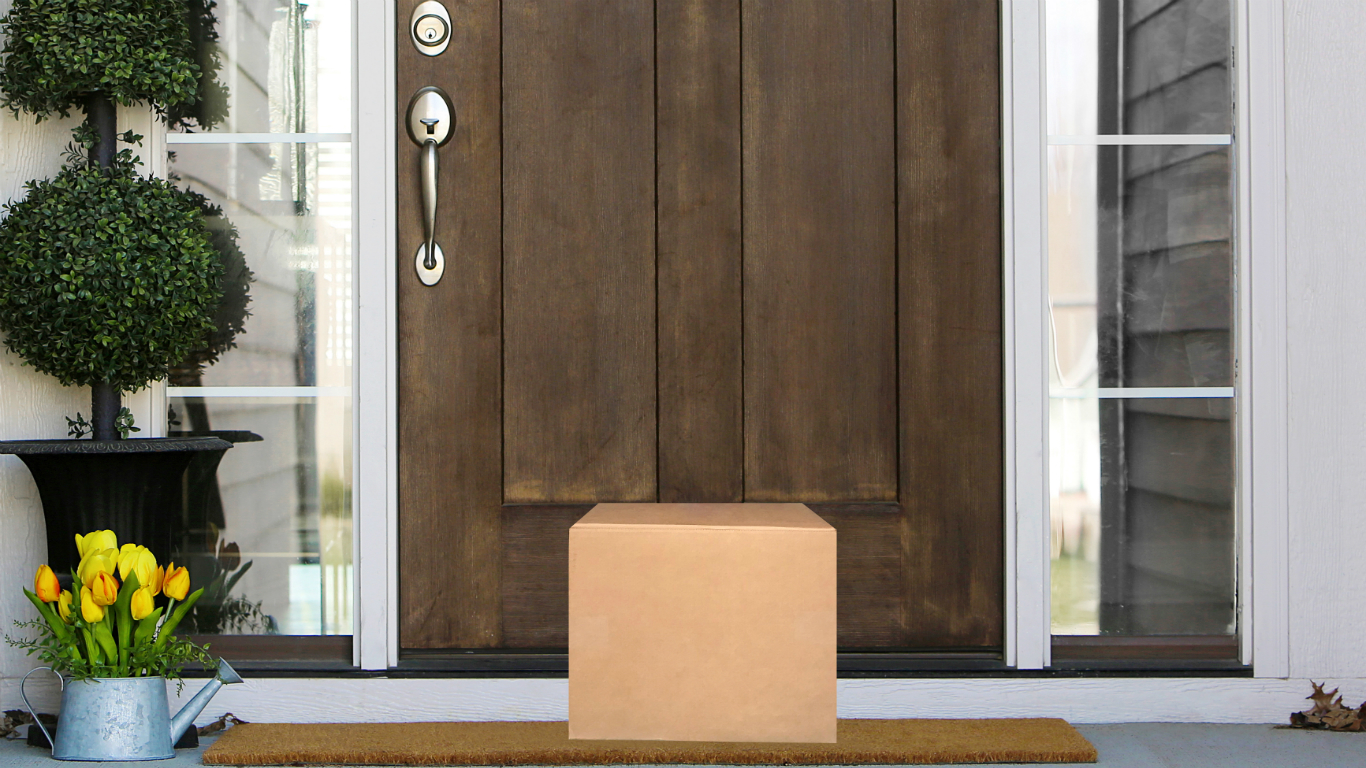Companies and Brands
Some States Take Action to Crack Down on Porch Pirates

Published:
Last Updated:

Piracy is rampant in America today, but it’s not the kind involving grizzled seamen wearing eyepatches and muttering “Aaargh, matey!”
The problem today is porch piracy — the purloining of packages and other deliveries from front porches and mailboxes.
A study published by Digital Commerce 360’s Internet Retailer site shows that Americans spent some $517 billion in online retail purchases last year, accounting for more than 14% of total adjusted retail sales (factoring out items not normally purchased online). Ten years ago, the figure was 5.1%. And things that get ordered on line usually get delivered to the customer’s home or place of business, either by the USPS or by a carrier like UPS or Federal Express. If nobody is around to receive them, they just sit there, tempting thieves.
Nearly one American in five lost merchandise to porch pirates in 2016, according to a survey conducted by the home security firm Ring, and there’s no reason to think that the number has gone down since.
In some cases, porch pirates are after valuable items like iPads, small appliances, or luxury liquor or foodstuffs — but they also steal essential prescription medicines, checks, and documents bearing personal information that could facilitate identity theft.
State governments are beginning to take notice of this larcenous trend. Texas is leading the way, with a new law, taking effect in September, mandating prison terms ranging between 180 days and ten years and fines of $4,000 to $10,000 for convicted porch pirates. If any “item of identifying information” is stolen, penalties increase. (Texas is one of the states with the most identity theft.)
New Jersey is also targeting package-stealers with a newly passed Defense Against Porch Pirates Act, making package theft a fourth-degree crime if the value of the stolen goods is less than $200. For merchandise worth more, thieves would be guilty of “a crime one degree higher than the underlying offense.”
“Taking delivery packages from a person’s property is just as invasive as breaking into a home to steal them,” said State Representative Robert Karabinchak, co-sponsor of the New Jersey bill, in a statement.
California, South Carolina, and Michigan are among the other states that are addressing the issue. According to a study by the video security company Blink, however, the states where packages are most likely to be stolen are North Dakota, Vermont, and Alaska. Cities in these three states are among the cities with the most property crime in the country.
Retirement planning doesn’t have to feel overwhelming. The key is finding professional guidance—and we’ve made it easier than ever for you to connect with the right financial advisor for your unique needs.
Here’s how it works:
1️ Answer a Few Simple Questions
Tell us a bit about your goals and preferences—it only takes a few minutes!
2️ Get Your Top Advisor Matches
This tool matches you with qualified advisors who specialize in helping people like you achieve financial success.
3️ Choose Your Best Fit
Review their profiles, schedule an introductory meeting, and select the advisor who feels right for you.
Why wait? Start building the retirement you’ve always dreamed of. Click here to get started today!
Thank you for reading! Have some feedback for us?
Contact the 24/7 Wall St. editorial team.